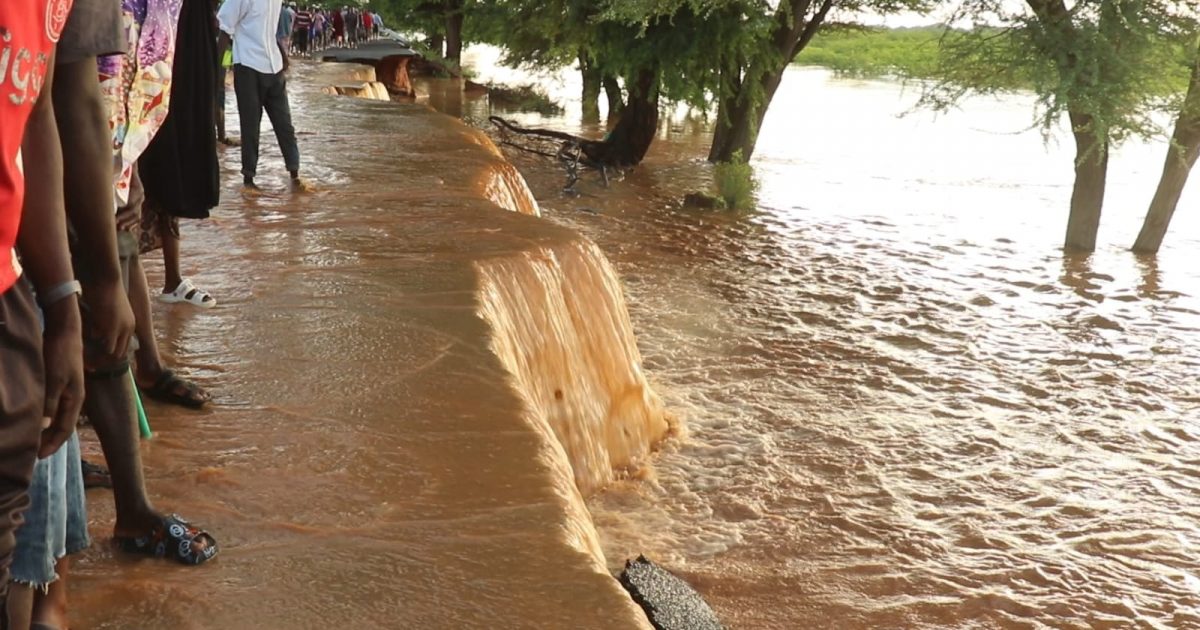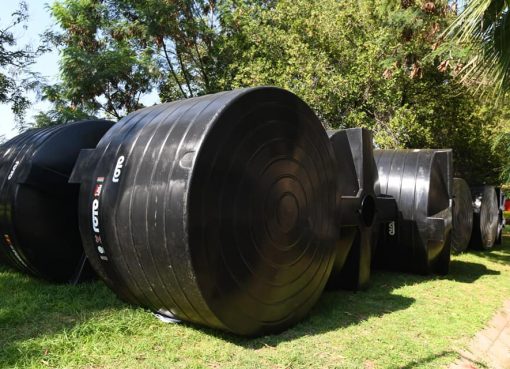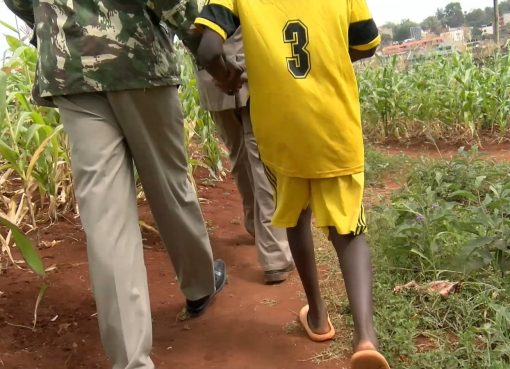Garissa residents and North Eastern, in general, are now staring at an uncertain future after KeNHA closed the Nairobi – Gaissa highway after three sections of the road were swept away by floods.
Kenya National Highway Authority (KeNHA) last night indefinitely closed the Modogo – Garissa stretch that is part of the Garissa – Nairobi highway after floods cut through the road rendering it impassable to both motorists and residents.
The highway is not only the entry point to North Eastern but the major supply route to the region. Trucks supplying groceries and foodstuffs are stuck in the Tula area as they cannot cross the flooded road.
Matters have been made even worse after the Garissa – Hola – Mombasa Road was also closed to traffic by KeHNA as two sections of Dokanotu and Bilbil were also swept away by floods as the relentless El-Nino induced rains continue to pound several parts of the country.
KNA toured the roads today and talked to the residents who called on the national government to redesign the two major roads and construct bridges to allow flood water to pass through without cutting off the roads.
Addressing the press at Arer, Alex Njeru, a community leader and Garissa-based businessman warned that in the coming weeks, Garissa town will run out of food supplies and fuel if the highway is not urgently opened up to traffic.
Arer is among the three sections on the Nairobi – Garissa highway that has been cut off by the floods. Bus companies plying the Garissa – Nairobi, and Garissa – Mombasa routes have also suspended their services.
“It pains to helplessly watch as the road continues to be destroyed by the floods. This means that Garissa will soon run out of food, and fuel, and more critical is that those who need urgent medical treatment in Nairobi will just die. No planes are landing in Garissa because the airstrip is not safe,” Njeru said.
“I am requesting the national government to redeem the situation before it gets worse. We are told the dams have not started overflowing. When it happens, I don’t know. We want the government to do something,” he added.
Mburu Manyatta, a Garissa-based transporter said that his trucks are stranded between Garissa and Tula area.
“As transporters, we incurring losses running into millions. If the road is not opened, things could get worse. Some of the transporters took loans to buy the trucks and you know what that means,” Mburu said.
At the Dokanotu area on the Garissa – Mombasa, Yussuf Sheikh Mohamed said that modern bridges should be built on the destroyed sections of the road and the contracts should be awarded to experienced Chinese companies.
“We will not allow local contractors who have no experience to repair and build bridges on this road. The road cannot be closed every time we experience floods because of shoddy work by our local contractors. Enough is enough,” Mohamed said.
He said that the national government should construct mega dams in areas that are pouring flood waters onto the major roads.
Speaking in Madogo, retired civil servant Daudi Loka said that even the 1997 El Nino rains did not destroy the major highways as it is being witnessed this time round.
Loka said that the entire of Mororo along the highway is totally submerged in water after the river tana burst its banks last night.
“This is a disaster in waiting. We cannot cross to Garissa town or travel to Nairobi or Mombasa. I cannot imagine how Madogo and Garissa will look like in a week’s time if the floods don’t subside,” Loka said
“Majority of Madogo residents are casual laborers in Garissa homes, shops, hardware and construction sites. They did not go to work today. I am trying to imagine how they are going to feed their families now and in the coming days,” he added.
Sala Ward MCA Mohamed Barrow said that all villages along the river Tana are submerged and require urgent relief assistance among them tents, foodstuff, mosquito nets, drugs, and other non-food items.
At least 90 people have lost their lives, and thousands of families displaced as the El-Nino-caused rains continue to wreak havoc across the country.
By Jacob Songok





